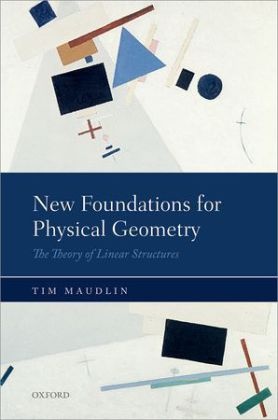Read more
Topology is the mathematical study of the most basic geometrical structure of a space. Mathematical physics uses topological spaces as the formal means for describing physical space and time. This book proposes a completely new mathematical structure for describing geometrical notions such as continuity, connectedness, boundaries of sets, and so on, in order to provide a better mathematical tool for understanding space-time. This is the initial volume in a two-volume set, the first of which develops the mathematical structure and the second of which applies it to classical and Relativistic physics.
The book begins with a brief historical review of the development of mathematics as it relates to geometry, and an overview of standard topology. The new theory, the Theory of Linear Structures, is presented and compared to standard topology. The Theory of Linear Structures replaces the foundational notion of standard topology, the open set, with the notion of a continuous line. Axioms for the Theory of Linear Structures are laid down, and definitions of other geometrical notions developed in those terms. Various novel geometrical properties, such as a space being intrinsically directed, are defined using these resources. Applications of the theory to discrete spaces (where the standard theory of open sets gets little purchase) are particularly noted. The mathematics is developed up through homotopy theory and compactness, along with ways to represent both affine (straight line) and metrical structure.
List of contents
- Acknowledgments
- Introduction
- Mathematical Foundations
- 1: Topology and Its Shortcomings
- 2: Linear Structures, Neighborhoods, Open Sets
- Appendix to Chapter 2
- 3: Closed Sets, Open Sets (Again), Connected Spaces
- 4: Separation Properties, Convergence, and Extensions
- 5: Properties of Functions
- 6: Subspaces and Substructures; Straightness and Differentiability
- 7: Metrical Structure
- Appendix: A Remark about Minimal Regular Metric Spaces
- 8: Product Spaces and Fiber Bundles
- 9: Beyond Continua
- Axioms and Definitions
- Bibliography
About the author
Tim Maudlin is Professor of Philosophy at Rutgers University. He received his doctorate in History and Philosophy of Science from the University of Pittsburgh. His work lies at the intersection of physics and philosophy, including the foundations of physics and logic.
Summary
Tim Maudlin sets out a completely new method for describing the geometrical structure of spaces, and thus a better mathematical tool for describing and understanding space-time. He presents a historical review of the development of geometry and topology, and then his original Theory of Linear Structures.
Additional text
This is an impressive book. ... Maudlin develops his own, new and independent, foundational scheme for geometry. Not only does he propose new principles, he elaborates them to such a degree that a serious alternative to traditional approaches begins to take shape. I think that this result, and the enthusiasm, energy and persistence displayed in the enterprise, deserve admiration. ... a remarkable achievement
Report
Maudlin's New Foundations for Physical Geometry is a fascinating and remarkable book Carolyn Brighouse, Mind

